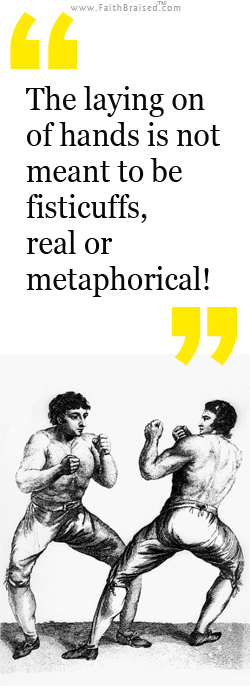The Psalmist tells us we are fearfully and wonderfully made.
It’s a lovely thought.
Until I get out of bed in the morning and my knee hurts in a way it has never hurt before for no particular reason. Then I hobble to the bathroom and look in the mirror at the hair that’s left my head and is now creeping out of my nose and ears.
Then I hobble to the bathroom and look in the mirror at the hair that’s left my head and is now creeping out of my nose and ears.
These are fearful things and I wonder why they are happening.
But I doubt that’s what the Psalmist was getting at.
All in all, I do believe we are fearfully and wonderfully made.
Fearful in the sense of “very great.” Wonderful in the sense of, well, very wonderful! Or, “inspiring delight, pleasure, or admiration; extremely good; marvelous.”
I can get on board with these definitions.
As for the nose hairs and bad knee, I blame these on Adam and Eve.
The Fall messed things up for all of us in ways we can only begin to imagine. Everything is not quite what it should be. Doesn’t function as smoothly as intended. Especially as aging brings us closer to our earthly end.
Because of The Fall -- the source of “original sin”-- everything is disordered. Out of whack. Maladjusted.
The consequences are myriad.
On the lesser side of impact are nose hairs and balding. Our genes and atoms aren’t exactly what they’re supposed to be so annoying stuff happens in our bodies. As well as in nature in general, which gives rise to disease and the like.
Greater consequences are terrorism, sex trafficking, bizarre politicians, and all that’s ugly and bad in the world. All things driven by the evil, Fall-impacted intentions of sin-bent people.
Okay, that’s putting it simply, but it’s still accurate. And gets to my point.
Even in the midst of all that is dark, mean, ugly, and just downright awful, because we all have within us the image of God -- imago dei -- we are not left hopeless.
We are not the random victims of a mindless happenstance universe.
Satan slinked into the Garden with the intention of destroying all that was good about God’s amazing, perfectly designed creation.
But then, God sent His Son, Jesus, to provide solace in the midst of suffering. Hope for the broken. Light for those needing a way up and out. Salvation for the lost.
All creation still groans awaiting the full and final resolution of what Christ accomplished on the cross.
But for us who turn to Him, right here and now, we have the grace and mercy of God to comfort us, redeem us, transform us, and prepare us for the day when knees will no longer ache and hair will grow only where it’s supposed to.
Until then, I’ll wear a cap as needed, clip unwanted hairs, pray for the afflicted, advocate for the harmed, resist evil through the empowerment of the Holy Spirit, and worship the God by whose hands I am fearfully and wonderfully made.
He is risen!
===
Additional Reading:
=======
 What are you thinking about, meditating on, mulling over this Easter season? Share your thoughts and insights in the comments!
What are you thinking about, meditating on, mulling over this Easter season? Share your thoughts and insights in the comments!
Click here to read a sample chapter (PDF) from my forthcoming novel, “The Hungering Dark: Awakening.” To learn more about the book, go to TheHungeringDarkStory.com.


